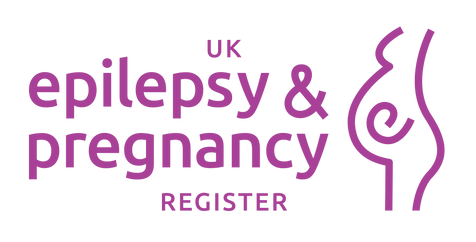Resources
For Families
Neurological conditions
Epilepsy
Please join the UK Epilepsy & Pregnancy Register
 The information from the register has identified which epilepsy medications are safest for women to take during pregnancy. Joining the register is a simple process of providing information about your treatment. Details about baby’s health will be collected a few weeks following delivery from your GP.
The information from the register has identified which epilepsy medications are safest for women to take during pregnancy. Joining the register is a simple process of providing information about your treatment. Details about baby’s health will be collected a few weeks following delivery from your GP.
Visit the website
UK Epilepsy & Pregnancy Register
Alternatively, send an email: UKEPR@manchester.ac.uk or call: 0800 389 1248
Migraine
Multiple sclerosis
Myasthenia Gravis
Diabetes
Diabetes for families Information
You may have been diagnosed with Type 1 or Type 2 diabetes before pregnancy (pre-existing diabetes) or develop diabetes during pregnancy which then goes away after delivery (gestational diabetes).
It is very important that women with pre-existing diabetes prepare for pregnancy and receive pre-conception care from their GP or diabetes hospital team. Pre-conception care includes:
- Working to control blood glucose levels so HbA1c before pregnancy is less than 48mmol/mol if possible. This reduces the risk of complications in pregnancy. This may involve changing diabetes medications to those which can be safely used in pregnancy (Metformin and Insulin) and the use of diabetes technology.
- Review of other medications to check they are safe for pregnancy eg. blood pressure medication
- Looking for any diabetes complications particularly with the eyes or the kidneys
- Starting Folic Acid 5mg
Pre-conception Information
During pregnancy you will be cared for by a multi-disciplinary team including diabetes doctors, diabetes specialist nurses, diabetes specialist midwives, obstetricians and dieticians
Gestational Diabetes is checked for if you have risk factors identified when you book your pregnancy. You will be offered a glucose tolerance test.
- A pregnancy with diabetes is higher risk including:
- Miscarriage
- Congenital abnormalities
- Having a larger than expected baby
- Difficulties with delivery if baby is large
- Blood pressure problems and pre-eclampsia with risk of having a smaller than expected baby
- Baby being born early
- Increased chance of needing caesarean birth
- Increased risk of baby needing to go to the neonatal unit
- Increased risk of stillbirth
- Worsening of eye or kidney problems in pregnancy
The team will work hard to support you through your pregnancy and help to reduce the risk of these complications as much as possible. We will support you to control your blood sugars as well as possible and you are likely to be given diabetes technology to help support this. We will give you Aspirin to reduce the risks of pre-eclampsia and we will monitor your blood pressure and kidneys closely. You will have regular eye tests. We will perform scans to monitor how your baby is growing. Most women can have their care at their local maternity unit. Women who have significant diabetes complications may need support from the Maternal Medicine Centre.
Resources
Diabetes UK – Diabetes During Pregnancy
Top Tips for Looking after Diabetes in Pregnancy
- https://abcd.care/sites/default/files/resources/Pregnancy-Tips.pdf
- https://abcd.care/sites/default/files/site_uploads/Resources/DTN/Dexcom-Tips.pdf
Gestational Diabetes
For women who develop gestational diabetes in pregnancy treatment will stop after delivery but you are at increased risk of gestational diabetes in further pregnancy and developing Type 2 Diabetes in the future. It is important your HbA1c is checked every year.
Video
Diabetes in Pregnancy Video
For translations please click below:
Endocrine
Endocrine Disorders for families
There are lots of different Endocrine conditions. These can affect:
- Thyroid – most common
- Parathyroid glands which control calcium
- Adrenal glands
- Pituitary gland
- Bone conditions
- Genetic endocrine conditions
Most women will have a diagnosis of an Endocrine condition before pregnancy and will be cared for by their GP or a hospital Endocrine team. It is important that you plan your pregnancy and discuss this with your GP or Endocrinology team so you can receive pre-conception advice, make sure your condition is well controlled, and review all your medications.
A small number of women may have an Endocrine disorder diagnosed in pregnancy.
Your pregnancy will be supported by an Endocrinologist and the obstetric team. Most women can be cared for in their local unit but some of the rarer conditions may need support from the Maternal Medicine Centre.
Resources
Thyroid disorders:
- https://www.btf-thyroid.org/pregnancy-and-thyroid-disorders-guidance-for-patients
- https://www.btf-thyroid.org/thyroid-disorders-in-pregnancy